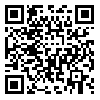سه شنبه 14 بهمن 1404
[Archive]
دوره 6، شماره 2 - ( 4-1404 )
جلد 6 شماره 2 صفحات 123-110 |
برگشت به فهرست نسخه ها
Download citation:
BibTeX | RIS | EndNote | Medlars | ProCite | Reference Manager | RefWorks
Send citation to:



BibTeX | RIS | EndNote | Medlars | ProCite | Reference Manager | RefWorks
Send citation to:
Chunoo V S. (2025). Identity, Capacity, and Efficacy for Ethical Leadership Education. johepal. 6(2), 110-123. doi:10.61882/johepal.6.2.110
URL: http://johepal.com/article-1-1258-fa.html
URL: http://johepal.com/article-1-1258-fa.html
(1404). Identity, Capacity, and Efficacy for Ethical Leadership Education نشریه سیاست و رهبری آموزش عالی 6 (2) :123-110 10.61882/johepal.6.2.110
چکیده: (1839 مشاهده)
Ethical leadership education is vital for developing leaders capable of navigating complex moral landscapes with integrity and purpose. This paper offers a thorough analysis of scholarly literature surrounding three interrelated constructs essential to ethical leadership development in higher education: identity, capacity, and efficacy. Leadership identity encompasses an individual’s evolving self-concept as a moral leader, shaped through reflection, mentorship, and socialization. Capacity refers to the skills, knowledge, and emotional intelligence necessary for recognizing and addressing ethical dilemmas. Efficacy captures one’s belief in their ability to lead ethically, particularly in high-stakes or ambiguous contexts. Drawing from research in leadership studies, moral development, and experiential education, the paper explores how pedagogical strategies such as reflective writing, service-learning, mentoring, simulations, and feedback enhance these three dimensions. The article underscores the importance of integrating identity, capacity, and efficacy through curricular and co-curricular experiences to cultivate principled, confident, and competent ethical leaders. It concludes by recommending future research on the intersectionality of these dimensions across diverse student populations and educational contexts, highlighting the need for intentional, inclusive, and developmental approaches in ethical leadership education. This integrated framework provides educators with a meaningful structure to guide and assess leadership learning, ensuring that students are prepared to lead with both moral clarity and practical effectiveness.
| بازنشر اطلاعات | |
 |
این مقاله تحت شرایط Creative Commons Attribution-NonCommercial 4.0 International License قابل بازنشر است. |



